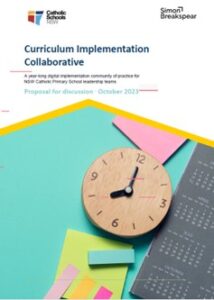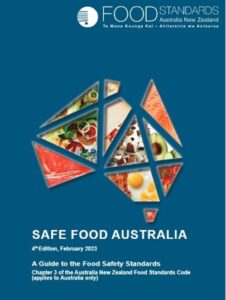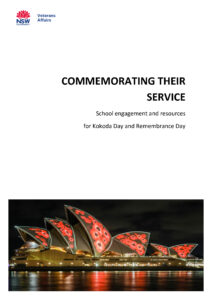Contents
Fake Invoicing for Using Copyright Materials (Ref: 297/23)
Catholic Schools NSW has become aware that schools may be receiving emails from companies demanding they pay a fine for using an image in a manner that infringes upon the copyright. Generally, these claims relate to images or photos that schools use in their materials (such as in a school newsletter or on the school website). Often schools actually have a licence to use the image (for example, under the Statutory Text and Artistic Works Licence, a Creative Commons licence or other licence or permission) and the company sending the infringement notice may not be aware of this. If you receive a copyright infringement notice, you should follow the process set out below. How do these companies operate? Content creators, such as photographers and artists, can register with a company like Copytrack or Pixsy and authorise them to search the web on their behalf for infringing uses of their material. These companies use software to identify material on the internet that is potentially infringing the rights of those content creators. Without making further enquiries as to whether the user may actually have the right to use that material, the company might send an email demanding payment, advising that it represents the copyright owner and, in some instances, threatening to commence court proceedings if the receiver of the email does not pay the fine. Sometimes, a company may claim to represent a copyright owner who may not actually be the owner of the image or photo that is the subject of the alleged infringement. Examples Below are just some examples of these kinds of companies:
- Hodgkinson Global
- Copytrack
- Pixsy
- Picrights
- Lapixa
- Emedialaw
What can I do if I receive a letter or email alleging infringement? 1. Remove the material The school should take the material down immediately while the issue is being resolved (for example, remove the image or photo from the school website or take down the school newsletter that contains the image). The school should record the date and time the material was taken down. The school should also consider where else the material has been used by the school and take steps to immediately cease those uses. 2. Contact the National Copyright Unit.3. Don’t respond to the email and contact the National Copyright Unit immediately with:
- a copy of the email;
- details about the image/photo that is the subject of the infringement claim;
- the date and time at which the material was taken down (from the website, etc.); and
- any other relevant information. If you know the basis on which the school used the material, you can include that (for example, that the image was used with permission from the copyright owner, under a licence like Creative Commons, or under an education exception or the Statutory Text and Artistic Works Licence).
4. The NCU will assess all the relevant facts and information and advise on the next steps.Important Schools, departments and administering bodies should not panic if they receive an email or letter alleging copyright infringement. The NCU will provide advice and guidance on how to respond. Additional informationThe purpose of this update is to provide a summary and general overview. It is not intended to be comprehensive, nor does it constitute legal advice. If you need to know how the law applies in a particular situation, please seek specific advice from the NCU. For information about our National Copyright Webinar Series and Copyright for Educators (C4E) course, please visit the Smartcopying website.
Conditional Provision of ATARs to School Principals (Ref: 295/23)
After many years of negotiation, the Universities Admissions Centre (UAC) is now in the process of providing school principals with the details of how to access the ATARs of their 2023 Year 12 students on School Hub. ATARs will be uploaded to School Hub by 10 am on 14 December 2023 and will be available to students from 9 am on that day.
2023 is the first time that principals will have access to student ATARs. However, the access is subject to the following conditions:
- the students must be UAC applicants who have agreed to the terms and conditions of their application, which include UAC releasing these details to their school;
- the school principal must, at all times, protect the confidentiality and security of the information provided, including meeting the requirements of section 18A of the Education Act 1990 (NSW) around publication of school results.
Principals will be able to access the available ATARs in the same way that they now access student UAC application course preference and offer details: by logging in to School Hub and agreeing to the terms and conditions of using student data.
If principals have any questions about School Hub, they should email [email protected] or contact the UAC Customer Service team.
Please note: CSNSW will continue to provide its ATAR estimation service to schools.
ARRP Webinar: Ethical Decision-making Relating to Teaching and Wildlife Studies (Ref: 294/23)
The Animal Research Review Panel (ARRP), in partnership with the NSW Department of Primary Industries (DPI), invites you to attend its webinar on Tuesday, 14 November: Ethical Decision-making Relating to Teaching and Wildlife Studies.
Speakers include Dr Peter Fleming from the NSW Department of Primary Industries, Dr Anne Quain from Sydney School of Veterinary Science and Assoc. Professor Michelle Campbell from Sydney University.
In NSW, the welfare of animals used for animal research is protected by the Animal Research Act 1985. The Animal Research Act covers the use of animals for a range of purposes, including their use in research, teaching, field trials, diagnosis of disease, production of biological products and environmental studies.
‘Animals’ include all live non-human vertebrates (fish, amphibians, reptiles, birds and mammals) and includes laboratory animals, farm livestock and wildlife. Wildlife surveys are considered animal research and are therefore subject to the provisions of this legislation. The legislation also requires that the conduct of animal research must be consistent with the provisions of the Australian Code.
If you have missed any of the ARRP’s previous webinars, recordings and resources can be found on the Animal Ethics Infolink website.
2024 Curriculum Implementation Collaborative (Ref: 292/23)
The Curriculum Implementation Collaborative is an initiative developed in partnership between Breakspear Learning and Catholic Schools NSW as a dynamic and practical professional learning response to the challenge of ensuring deep curriculum implementation.
The Collaborative will provide content, community and support in an online setting throughout 2024 to ensure all leadership teams are equipped to make meaningful progress every term to ensure deep curriculum implementation.
There is a cost and associated time commitment in joining this program, the details of which are outlined in the proposal document, which can be accessed via the 2024 Curriculum Collaborative link.
Interested schools are invited to complete and submit an Expression of Interest Form before COB on Monday, 13 November.
Further details are available from Joanne Hack [email protected]
Updated Food Standards Code (Standard 3.2.2A) (Ref: 287/23)
Recent changes to the Food Standards Code have introduced new food safety requirements for cafes, restaurants and retail outlets.
From Friday 8 December 2023, food service, caterer and related retail businesses in Australia that process unpackaged, potentially hazardous food, and serve it ready-to-eat are required to:
- have a qualified onsite Food Safety Supervisor, who is reasonably available to supervise food handlers (this is already a requirement for some of these of businesses),
- ensure all food handlers are trained in food safety and hygiene, or can demonstrate adequate skills and knowledge, and
- be able to show their food is safe.
Businesses that only slice, weigh, repack, reheat or hot-hold potentially hazardous food they have not made themselves are required to:
- have a qualified onsite Food Safety Supervisor, who is reasonably available to supervise food handlers, and
- ensure all food handlers are trained in food safety and hygiene, or can demonstrate adequate skills and knowledge.
See Standard 3.2.2A – Frequently asked questions for more information.
School resources for Kokoda Day and Remembrance Day (Ref: 288/23)
The NSW Office for Veterans Affairs has released a school resource pack for schools to commemorate Kokoda Day and Remembrance Day for 2023, including activities and informational resources.
Schools are encouraged to organise commemoration services for Kokoda Day and Remembrance Day. It is suggested that invitations could be extended to the local Member of Parliament, Mayor and local council, and members of the local RSL sub-Branch. The below link provides some details for delivering a commemorative service:
- Link to NSW Veterans Affairs: Plan and deliver a commemorative activity · Office for Veterans Affairs (nsw.gov.au)
- The Ode, Last Post and Rouse can be downloaded as an audio link: veterans.nsw.gov.au/assets/veterans-affairs/4-AMCP-service-simple.mp3
National Office for Child Safety – child sexual abuse resources (Ref: 285/23)
On 22 October, the National Office for Child Safety launched ‘One Talk at a Time’, a national awareness raising and behavioural change campaign on child sexual abuse.
One Talk at a Time aims to protect children and young people from sexual abuse by helping adults understand that child sexual abuse is preventable and encouraging them to have ongoing, proactive, preventative conversations with children, young people and other adults in their lives.
This campaign is a key measure under the National Strategy to Prevent and Respond to Child Sexual Abuse 2021-2030 and fulfils a recommendation of the Royal Commission into Institutional Responses to Child Sexual Abuse.
Australian Business Economists Schools Event (Ref: 284/23)
Students in year 10 are encouraged to attend what promises to be an informative event revolving around careers in economics.
Australian Business Economists aims to develop a better public understanding of economic issues and is running this event to educate students and encourage them to consider a career in economics.
The event is framed around the question “Would you like the tools to change the world?” and students will have opportunities to hear from four economists working in the Department for Foreign Affairs and Trade, Westpac, the Reserve Bank of Australia, and Barrenjoey. You can read about the event in detail here: ABE Schools SYD
Date: Thursday 9 November
Time: 10:30 am – 1:00 pm (in person); 10:30 am – 12:00 pm (online)
In person: Eastern Avenue Auditorium, The University of Sydney, Darlington
Online: via webinar
Register for the in person event here: ABE Schools Event – The tools to change the world @ Sydney University Registration
Register for the webinar here: ABE Schools Event – The tools to change the world @ BY WEBINAR SYD Registration
2024 CSSA Trial HSC Examinations: Expressions of Interest for a Committee Member (Ref: 286/23)
The CSSA provides teachers and students in schools throughout New South Wales, ACT and internationally with premium Trial HSC Examinations that will provide a sound basis for their preparation for the HSC examinations later in the year. The CSSA Trial HSC Examinations are prepared by committees of practising teachers, university lecturers and education consultants in a variety of HSC courses.
The Head of CSSA Exams is seeking expressions of interest for the following positions.
A Committee Member for the following 2024 CSSA Trial HSC Examination:
- Engineering Studies
The letter regarding the Expression of Interest requirements for the Committee Member roles with the CSSA and the application process is found here.
Interested applicants are asked to send a Cover Letter and current Curriculum Vitae to Monica O’Brien, Head CSSA Exams, at [email protected] by 9am Friday 10 November 2023.
Announcement of Participating Schools for the 2024 – 2027 National Student Wellbeing Program (Ref: 296/23)
The NSWP, which is a Commonwealth Government-funded initiative, aims to improve the wellbeing of young people through the provision of chaplains or wellbeing officers in schools. This program will support vulnerable young people and aims at improving their mental health and wellbeing.
Through a robust, needs-based methodology, CSNSW prioritised schools for participation based on an assessment of applications against the core criteria and common conditions, as outlined in the NSWP Guidelines. The needs-based lens CSNSW applied to all applications included ICSEA data, Indigenous student population, school attendance rate and level, wellbeing needs and the school’s readiness to participate in the Program. Finally, we considered a school’s previous participation in the Program and assessed whether there were areas of unmet need in communities that had not yet benefited from the Program.
This new program will see 142 systemic and non-systemic Catholic schools across all 11 dioceses in NSW participate. This is an increase in participating schools from previous years, and it is pleasing to have all dioceses in NSW represented in the program.
The list of schools participating in the program can be accessed here.
CSNSW’s Submission on the Draft Stage 6 English, Mathematics and History Syllabuses (Ref: 293/23)
CSNSW will be making submissions to NESA on behalf of the Sector on the draft Stage 6 English Mathematics and History syllabuses that are currently available for consultation. Subject matter experts from Dioceses and RI/MPJ schools are invited to complete a survey or participate in an online forum to help form the basis of these submissions.
Please complete the Expression of Interest Form if you would like to receive a survey or register for an online forum. Please click on the link and complete and submit the form by Monday, 20 November, and a survey or meeting link will be sent to you on reception.
Online Forums are scheduled for
- English: Wednesday 29 November 9.00-10.00 am
- Mathematics: Wednesday 29 November 10.30-11.30 am
- Ancient History: Friday 1 December 1-1.25 pm
- Modern History: Friday 1 December 1.30 -2.00 pm
Have Your Say Submissions
The syllabus for each course has been placed on the CSNSW Reform Hub, and teachers of these courses are encouraged to voice their professional opinion on the future of the Stage 6 curriculum via the Have Your Say Surveys, which can be accessed via this link https://csnsw.link/NESA-HaveyoursayS6
The consultation period will remain open till 18 December.
Please contact Joanne Hack at [email protected] if you have questions regarding any aspect of the Curriculum Reform.
The Australian Early Development Census Data Collection(Ref: 291/23)
The next Australian Early Development Census (AEDC) data collection will occur in Term 2, 2024, across all NSW schools.
Kindergarten teachers complete a checklist for each child in their class – it takes about 20 minutes per child. The Australian Government provides schools with teacher relief funds to support this process.
Principals will receive an email from the AEDC before the end of the year that includes important information on the data collection process.
The Australian Early Development Census (AEDC) is a nationwide triennial census that measures how children have developed by the time they start school. The AEDC aims to highlight what is working well and what needs to be improved or developed to support children and families. It measures five developmental domains:
- Physical health and wellbeing
- Social competencies
- Emotional maturity
- Language and cognitive skills
- Communication skills and general knowledge
Value of the data
The AEDC:
- Delivers essential information about the development of children in the community.
- Provides the opportunity to think about the social and environmental factors that influence child development.
- Moves the focus of effort from the individual to the community to make a bigger difference.
- Provides an opportunity to “shift the curve” or future of a whole population.
More information is available on the AEDC website.
Please contact Angela Cain ([email protected]) with any questions.



